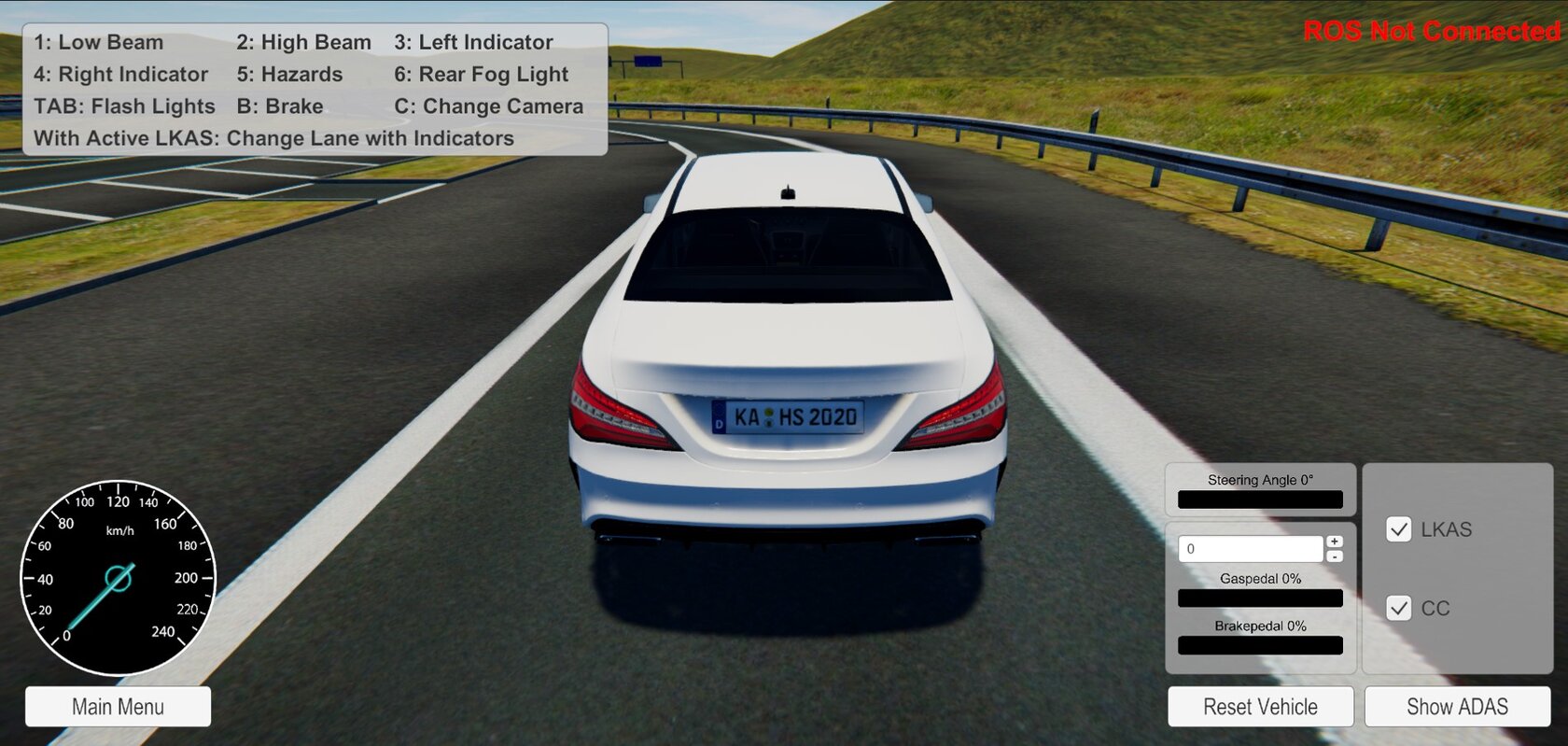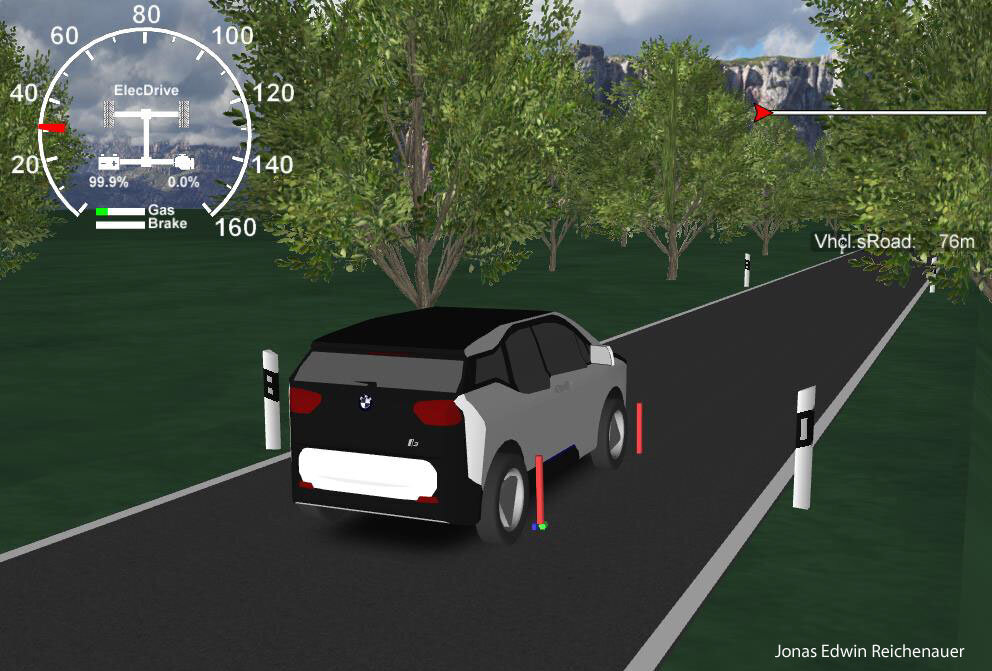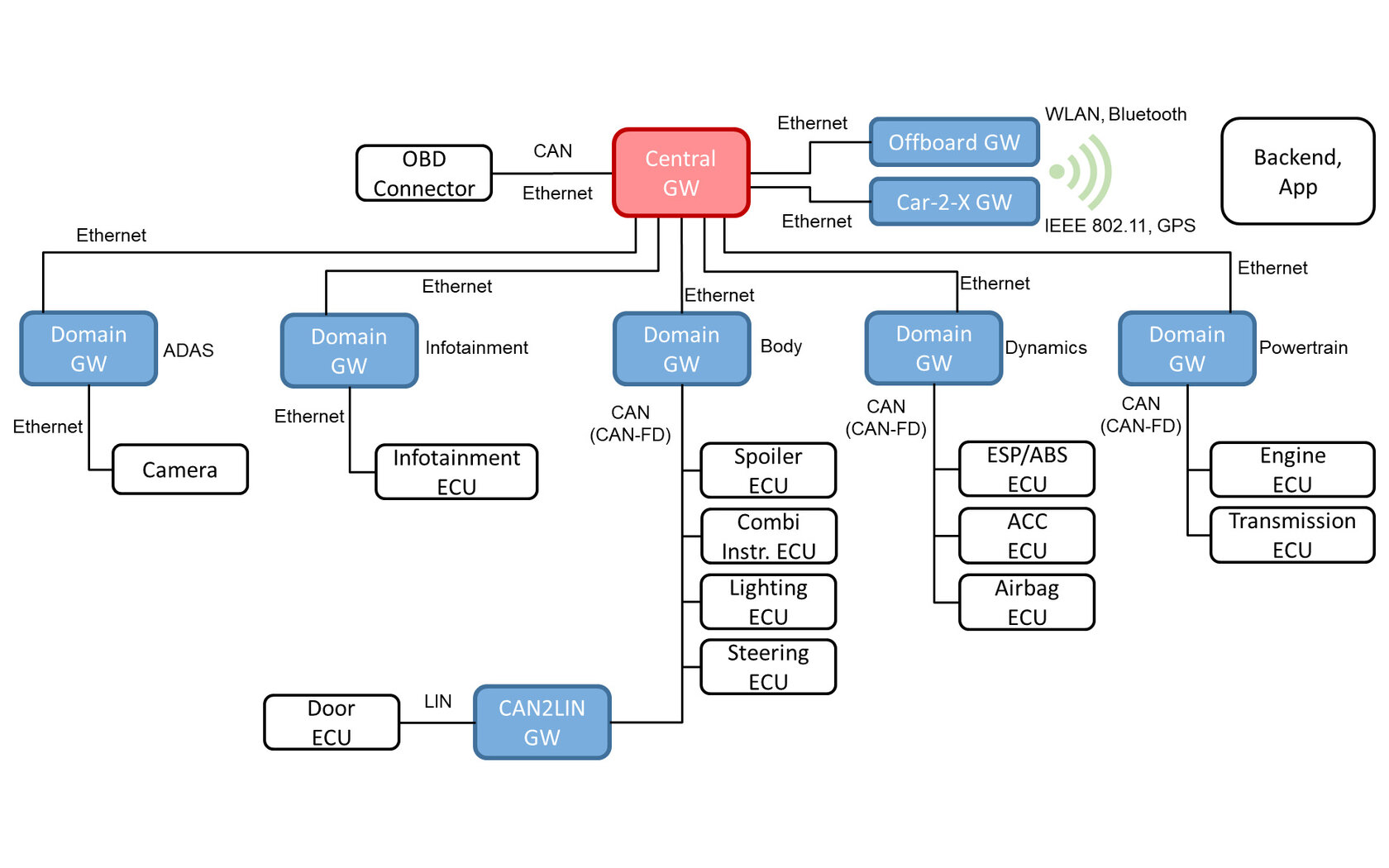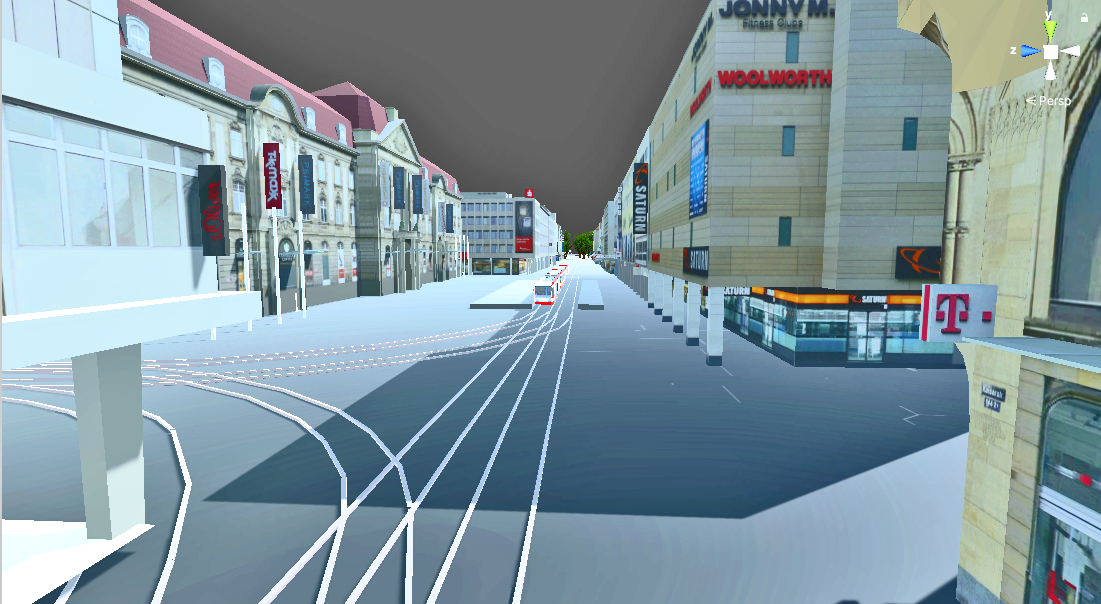
Virtual Test Fields for Mobility and Industrial Applications
Modern systems in mobility and industrial applications are highly complex and interconnected. Research and development processes, especially in the early stages, often cannot take this complexity sufficiently into account and consider all parameters. In particular, humans as users of the systems are an unknown factor here. This can be remedied by integrating users into simulations at an early stage. At IEEM, several proven tool chains are available to turn your project into a practical success.
Safe development of mobility and industrial systems through testing with simulation tools
For new technologies to function reliably, ongoing testing of the functions to be developed is indispensable during development in order to guarantee the holistic success rate as a system of systems. IEEM has expertise in the creation of virtual models as well as a wide range of simulation environments, also for connection to real prototypes.
Virtual tool chains are used in the following areas, for example:
Unity-Application
Use of an IEEM Unity application for the development of autonomous and ADAS vehicle functions within a virtual environment, such as in the student project ADAS-Sim. In addition to a simulative connection of the ego object (vehicle, bicycle, etc.), real prototypes can also be connected. The student project Sim-Bike also deals with the construction of a bicycle simulator within the Unity application.
MATLAB/Simulink and IPG CarMaker
Use of simulation tools such as MATLAB/Simulink and CarMaker to model systems and their environment. For example, one project deals with the modelling of intelligent energy and range management for e-vehicles and e-bikes with regard to mechatronics including powertrain and auxiliary consumers in Matlab/Simulink. The overall model is completed with additional interfaces for external influences (gradient, weather, etc.) and the use of further tools.
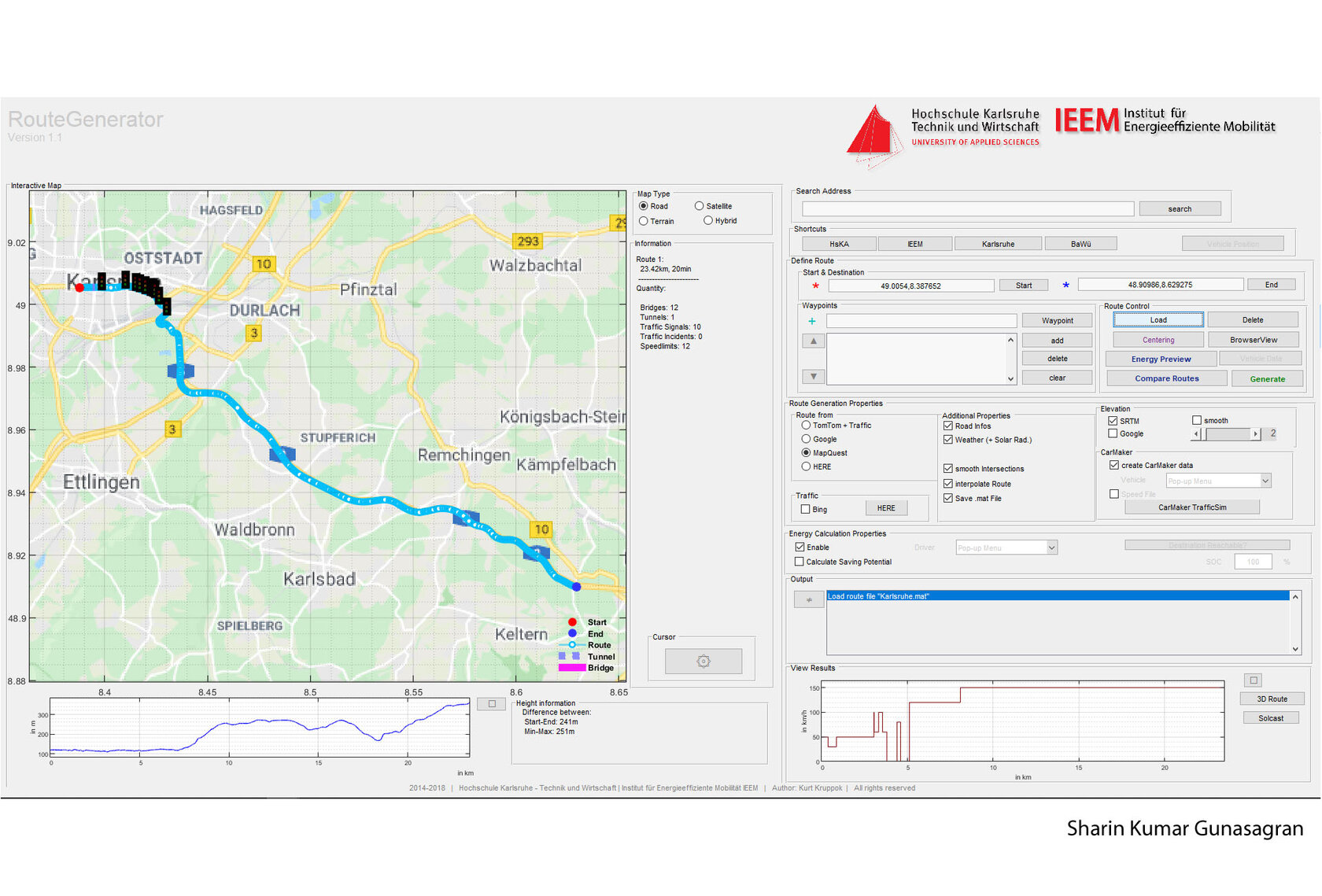
Innovative E/E Automotive Network
Modelling of a vehicle E/E architecture including offboard interfaces in a coordinated tool suite. Vehicle functions such as ADAS, Powertrain, Body & Comfort...) are integrated directly or via models into a networking model that approximates the entire vehicle communication behaviour. This allows functions to be optimised and safety concepts to be integrated during development.
Digital Twin
Virtualised multi-instance control system including virtualised control level was developed as a so-called digital twin and includes the possibility to couple virtual and real controls and to expand to complex control system architectures with real control components in plants.
IEEM's research focuses on the above-mentioned areas and strives for cooperation with science and industry. Students can also advance the development of virtual test fields with final theses and projects.
Key data
Karlsruhe
Institute of Energy Efficient Mobility (IEEM)
Moltkestr. 30
76133 Karlsruhe
Post >
Institute of Energy Efficient Mobility (IEEM)
Postfach 2440
76012 Karlsruhe
